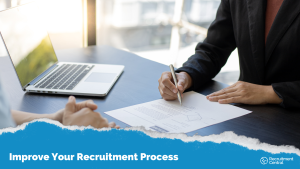The 4 Most Asked Questions About Christmas Work Rights
Recent studies show 34% of employees will take leave because their business shuts down over the Christmas/New Year period. This means your employer may direct you to take annual leave, leaving you unsure about your wages over Christmas. When you know your rights and what you can claim for wages, you can enjoy a worry-free Christmas even if you must take leave.
The Top 4 Most Asked Questions About Holiday Wages
1. Can My Employer Ask Me to Work on Public Holidays During This Time?
The easy answer is yes, however it cannot be mandatory.
Employees don’t have to work on a public holiday. However, an employer may ask an employee to work on a public holiday if the request is reasonable, and an employee may refuse that request if they have reasonable grounds.
What counts as a reasonable request:
- the employee’s personal circumstances (eg. family responsibilities)
- whether the employee will receive more pay (eg. penalty rates)
- the needs of the workplace
- the type of work the employee performs
- whether the employee’s salary includes work on a public holiday
- whether the employee is full-time, part-time, casual or a shiftworker
- how much notice the employer gave about working
- the amount of notice the employee gives when they refuse to work
2. Are There Different Pay Requirements for Public Holidays?
The general rule of thumb is yes. You need to know which award or agreement covers your employment. Minimum conditions at work come from registered agreements, awards or legislation.
When a business has a registered agreement in place that covers the work you do, the minimum pay and conditions in that agreement apply. If no registered agreement applies and an award covers your employer and the work you do, the minimum pay and conditions in that award apply.
More than 100 industry and occupation awards cover most people working in Australia. This means many employees who don’t have an agreement in place will still fall under an award.
Where no award or agreement applies, the legislation sets the minimum pay and conditions.
3. Can an Employer Make Me Use My Annual Leave During Shut Down?
Yes, provided they follow the guidelines. First, check your Letter of Employment or Employment Contract. Your employer should also let you know in advance.
An employer may direct an employee to take annual leave in some situations. For example:
- when the business closes during the Christmas and New Year period
- when an employee has accumulated excess annual leave
Awards and registered agreements set out the rules about when and if an employer can direct an employee to take annual leave.
4. What If I Don’t Have Enough Accrued Leave?
If the award or agreement allows it, your employer may direct you to take annual leave in advance of accrual or unpaid leave for some or all of the time.
Some awards or registered agreements let an employee take annual leave in advance if the employer agrees in writing.
If the award or registered agreement allows leave in advance, both employer and employee must make a written agreement that:
- both sign
- states how much annual leave the employee will take in advance
- states the day the leave starts
Employers must keep a copy of the agreement with employee records.
If an employee takes leave in advance and their employment ends before they’ve accrued it all back, the employer may deduct the amount still owing from the employee’s final pay.
Recommended reading: If you’re thinking about a raise or climbing the career ladder, start with our guide
How to Get a Promotion or Payrise.
It’s packed with proven steps candidates are using right now to negotiate better, build their value and get ahead.
Looking for extra support while navigating your job search?
Explore our Candidate Resources Hub for practical tools, templates, and career advice.
You can also refresh your materials with our guide on Updating Your Resume Made Easy, then stay motivated by subscribing for monthly insights, new roles, and job search tips here.
For more career and interview advice, visit this page.


















